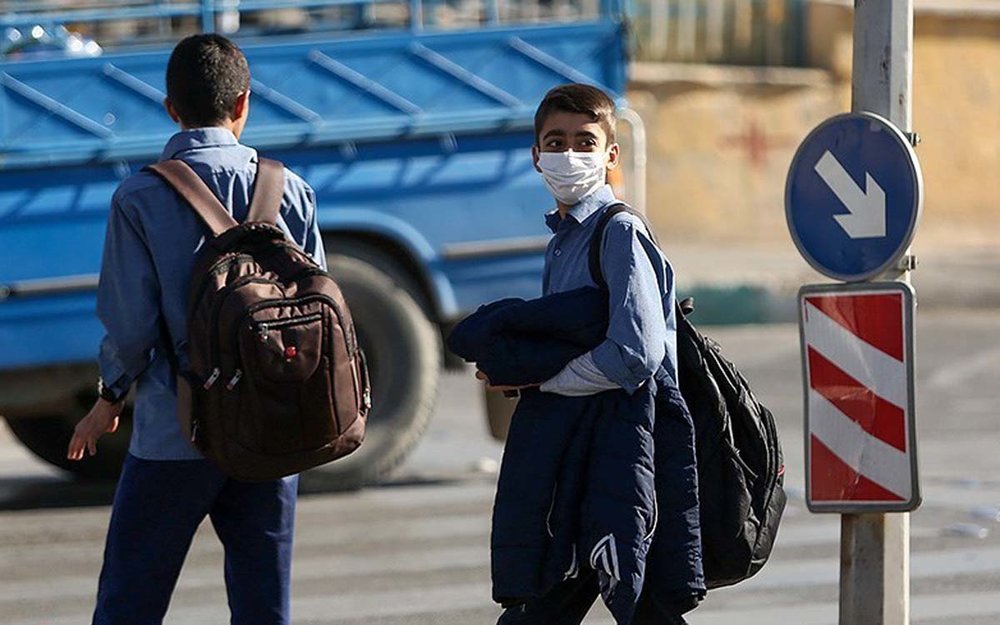Changing the school year schedule: hopes and concerns

TEHRAN — For many Iranian students the beginning of the school year also called Aval-e Mehr (literally meaning the first day of the seventh Iranian calendar month of Mehr), which falls on September 23, is a nostalgic memory which is about to change.
The cool breeze of autumn, tree leaves starting to fall, the smell of freshly printed books and the excitement of using the new stationery are tied in with Aval-e Mehr both for those who are still going to school and those who have long been graduated.
And now for some years the persistent air pollution in Tehran which force the Education Ministry to close down the schools for several days during cold seasons has convinced some policy-makers to change school calendar and think of planning a two-week break during autumn or winter to avoid the unplanned and unwanted holidays. Last year (March 2017-March 2018) some 108 days were reportedly polluted in Tehran.
In order to compensate for the two-week holidays in the middle of school year, it is proposed that the school year begins two weeks earlier or one week earlier and end one week later than it is supposed to.
In January, chief of the Department of Environment Issa Kalantari, proposed one-month break in late autumn and early winter for Tehran and northern cities to “ward off students from air pollution”. He proposed the implementation of the break from December 6 to January 5 and instead starting the school year in early September, however Education Minister Mohammad Bat’haei voiced his objection to a one-month break.
Bat’haei also explained that this is not a matter for the Education Ministry to decide and is actually a cross-sectoral issue and should be thoroughly discussed.
Bat’haei announced on May 16 that the school year will begin one week earlier (September 16) and end one week later than normal, so that students will have a two-week break during autumn or winter. He didn’t reveal any more details on the exact date of the break.
At the same time, tourism chief Ali-Asghar Mounesan, explained that winter break would serve the tourism industry well particularly in southern provinces and islands of Iran, situated fairly near equator, which can be best spots for trips during winter.
Navid Adham, secretary general for education supreme council, also explained that a three-month summer holiday for students is not justifiable as it seriously harm the education system since student will be away from school for so long.
However, Majlis [the Iranian parliament], passed a law in 1997 recognizing the very first day of the autumn as the beginning of school year nationwide and for all school grades and law hasn’t changed since then, Adham said, satiating that the law is the first thing that is impeding the process for altering school calendar.
Another alternative is to change school calendar year depending on the distinguishing climatic conditions of each region. But, Mahdi Bohlouli, an education expert with Ministry of Education, has told IRNA news agency that such changes would cause difficulties for the ministry.
Some of the final exams and Konkur (a multiple choice exam held for gaining admission to universities) are being held simultaneously nationwide and changing the school calendar for each region regarding it climatic characteristics would be wrong.
Bohlouli highlighted that most schools are not equipped with appropriate heating and cooling systems.
Nonetheless, 80 summer holidays are better to be shortened and having some holidays in winter and autumn would be beneficial to the education system, but putting in place necessary infrastructure and weighing up the pros and cons is a must, he added.
While the new school year will start in 24 days the issue has not even been proposed to the Majlis.
Mirhemayat Mirzadeh, a parliament member, also said that the parliament has not discussed the issue and that it is highly unlikely for the Majlis to approve it.
Altering school calendar year, in order to boost educational standards is an issue which needs to be studied in depth. But a winter break to mitigate air pollution during cold seasons or protecting the children from harmful effects of pollutants is not a permanent solution to solve the predicament.
Environmental policy-makers should also think of better solution to tackle the long-standing air pollution in metropolises.
MQ/MG
